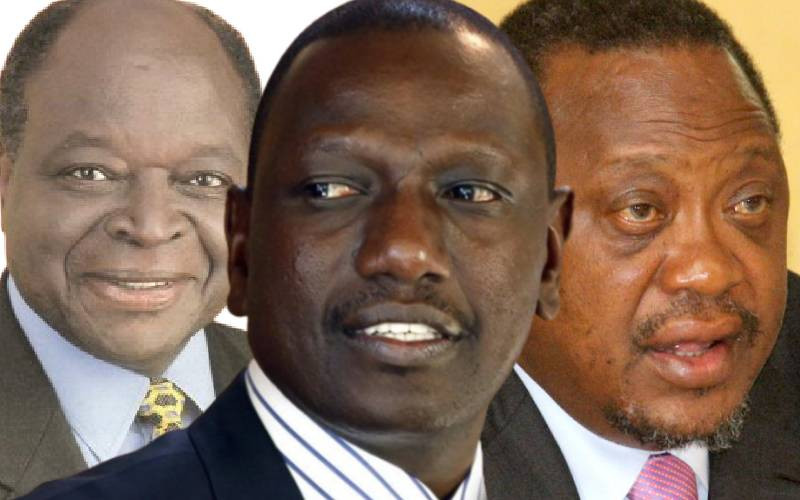President Uhuru Kenyatta has urged commercial banks to work closely with the Central Bank of Kenya (CBK) to make credit affordable to all Kenyans.
He said additional reforms are needed to sustainably lower lending costs using a free market mechanism.
Speaking at Nairobi National Museum during the unveiling of CBK currency exhibition christened “Numismatic Museum”, Uhuru said he was concerned that interest rates in Kenya remained high compared to other middle income economies.
In spite of milestones in the financial sector, the President said, consumers had not realised much gains, prompting him to recently pass legislation capping interest rates.
“Despite the deepening of financial markets and the recent introduction of credit information sharing, consumers have yet to benefit from reduced cost of credit.
“In fact, interest rate spreads in Kenya have remained higher than in comparable middle-income economies,” said the head of State.
He urged commercial banks to be more innovative and transfer the benefits to customers through reduced cost of borrowing. This, he added, will immensely support the country’s economic transformation.
“Additional reforms are needed to protect consumers and sustainably lower lending costs in line with our commitment of a free-market economy,” said Uhuru.
His sentiments come at a time when banks have expressed outcry that the Government defied free market forces by capping interest rates. Commenting on CBK’s 50-year milestone, Uhuru praised the regulator for leadership, especially in the 1970s to 1980s when countries around the world were grappling with shocks such as high oil prices and stagflation.
“We experienced banking crises in the 80s and early 90s, resulting largely from weak corporate governance, insider lending, and poor asset quality and management.
CBK played a key role in coming up with appropriate reforms to address the weaknesses and foster financial stability,” he added.
Smartphone penetration
The head of State said more financial sector reforms are necessary to create a vibrant sector to encourage more savings and support investment in line with the country’s development blueprint, Vision 2030.
The financial sector has experienced strong revolution strongly supported by innovations such a mobile money services.
As a result, access to formal financial services has grown from 26 per cent in 2006 to over 75 per cent currently.
Stay informed. Subscribe to our newsletter
Meanwhile, Safaricom Chief Executive Bob Collymore has said partnerships between commercial banks and mobile network operators in developing countries like Kenya are the solution to bridging the financial inclusion gap.
He said mobile network operators are providing complementary services to commercial banks, a fact that is helping to accelerate financial inclusion.
“As Africa’s smartphone penetration leaps to 50 per cent by 2020, up from only 18 per cent in 2015, we can expect access to financial services on mobile phones to make a corresponding leap,” said Mr Collymore during a symposium to mark the Central Bank of Kenya’s 50th anniversary in Nairobi.
The East African region currently leads the world in mobile money accounts, with over 21 million people using their mobile phones to access basic financial services.
 The Standard Group Plc is a
multi-media organization with investments in media platforms spanning newspaper
print operations, television, radio broadcasting, digital and online services. The
Standard Group is recognized as a leading multi-media house in Kenya with a key
influence in matters of national and international interest.
The Standard Group Plc is a
multi-media organization with investments in media platforms spanning newspaper
print operations, television, radio broadcasting, digital and online services. The
Standard Group is recognized as a leading multi-media house in Kenya with a key
influence in matters of national and international interest.
 The Standard Group Plc is a
multi-media organization with investments in media platforms spanning newspaper
print operations, television, radio broadcasting, digital and online services. The
Standard Group is recognized as a leading multi-media house in Kenya with a key
influence in matters of national and international interest.
The Standard Group Plc is a
multi-media organization with investments in media platforms spanning newspaper
print operations, television, radio broadcasting, digital and online services. The
Standard Group is recognized as a leading multi-media house in Kenya with a key
influence in matters of national and international interest.









